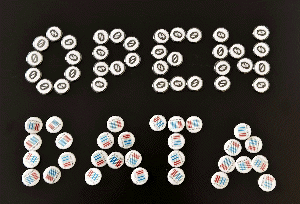Data Licensing
Introduction
A data licence agreement is a legal instrument that lets others know what they can and cannot do with a particular dataset (and any documentation, scripts and metadata that are published with the data - information about software licensing can be found on the software licensing page). It is important to consider what kind of limitations are relevant. Usually, at least the following questions are considered:
- Can people make copies or even distribute copies?
- Do others (and you) reusing the dataset need to acknowledge you as the author of the original dataset? (This is called Attribution.)
- Do others (and you) who reuse the dataset and/or make derivatives of the dataset need to share their work under a similar licence? (This is called Share-Alike.)
- Can others (and you) use your dataset commercially? (A restriction on commercial use is called Non-Commercial.)
- Can others (and you) create a new work based on the dataset? (This is called a Derivative.)
The considerations above are the ‘building blocks’ that Creative Commons licences use. There are also other considerations, and also other licences.

Reusing existing data
If you wish to reuse data collected by others (this could be data you received from for example Statistics Netherlands or from a company, a dataset you have found in an online repository, commonly used databases for which VU Amsterdam has a licence, etc.), make sure that you read the licence or terms of use. Also make sure that you work with the data according to the licence or terms of use. This can mean different things depending on the licence, but common things to consider are for example:
- cite the data in an appropriate manner;
- do not share the data beyond the project/purpose for which you received them;
- share the outcome of your research based on the data under a similar licence;
- only use them for scientific purposes (and not for commercial purposes, for example).
If you have questions about the legal context of using an existing dataset, you can contact the RDM Support Desk or the legal experts at IXA VU.
Licensing data
If you want to make your data available for other (research) purposes, it is important to apply a licence to it. Without a licence, it is impossible for others to reuse your data without your explicit approval. When you deposit your data in a repository, the repository will usually ask you to select a standard licence, or to create and add a custom licence yourself. If you need help with drawing up licence agreements, you can contact the VU’s legal office.
DataverseNL
In DataverseNL you can choose your terms of use when uploading data to the repository. The DataverseNL user guide explains how licensing works in the repository.
Yoda
If you publish your data in Yoda, there is guidance available on how to choose a licence and how to customise licences.
Open Science Framework (OSF)
In OSF, you can apply a standard licence to your materials or upload your own custom licence. The OSF user guide explains both options.
External repositories
Some data repositories require you to use a certain licence if you want to deposit your data with them. At Dryad, for example, all datasets are published under the terms of Creative Commons Zero to minimise legal barriers and to maximise the impact for research and education. Some funders may also require that you publish the data as open data. Open data are data that can be freely used, re-used and redistributed by anyone - subject only, at most, to the requirement to attribute and share alike (Open Knowledge International definition).
Additional websites and tools:
- Explanation about copyrights and licences by a professor from Leiden University (English subtitles available)
- The Guide to Creative Commons for Scholarly Publishing and Educational Resources by NWO, VSNU and the University and Royal Libraries
- DCC how-to guide on licensing research data, a guide that links to the Creative Commons website, where many terms are explained
- Open Data Commons Public Domain Dedication and License (PDDL)
- EUDAT B2SHARE licence selection wizard, which Pawel Kamocki (et al.) released under an open source licence.1
Footnotes
For the source code, see https://github.com/ufal/public-license-selector/↩︎